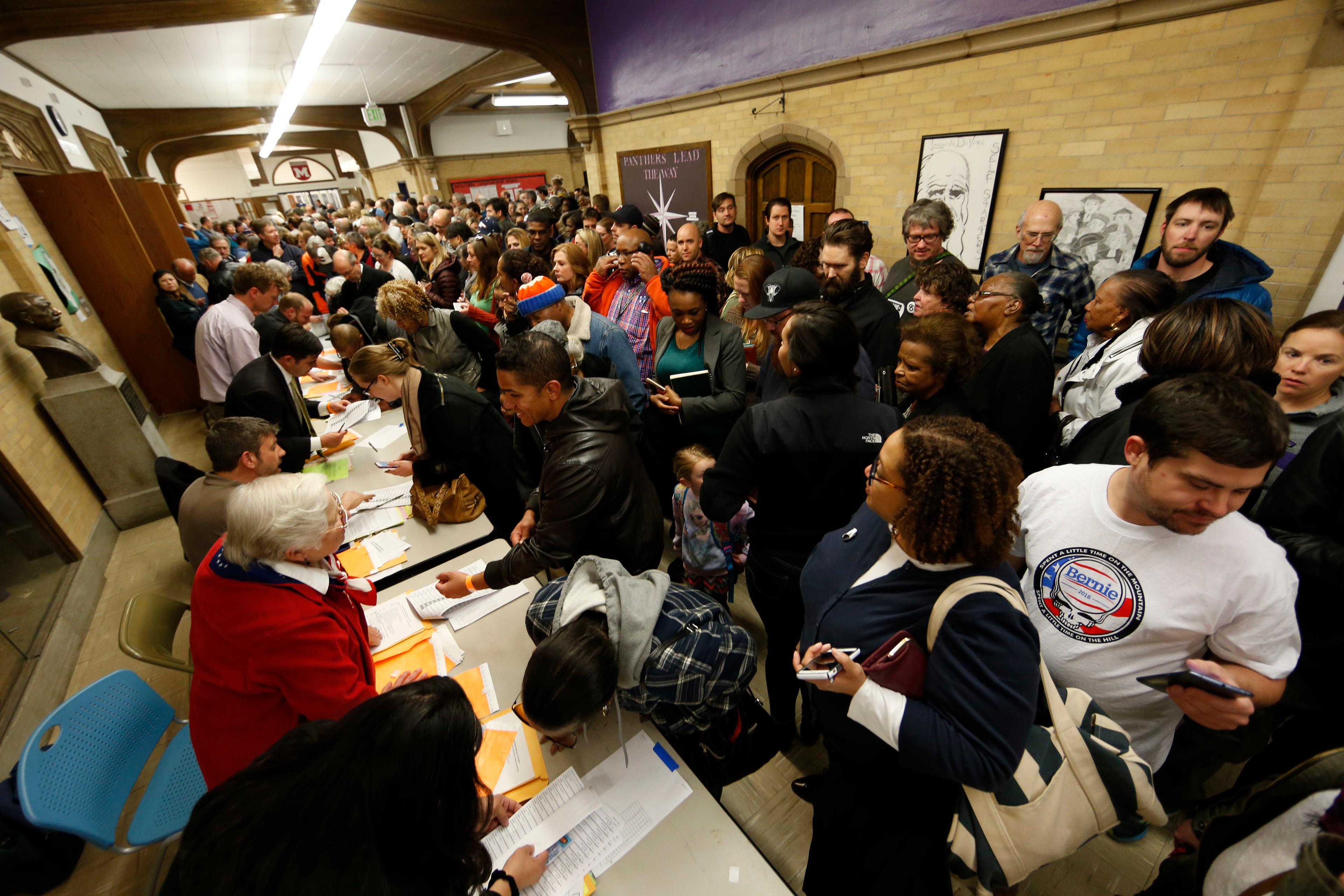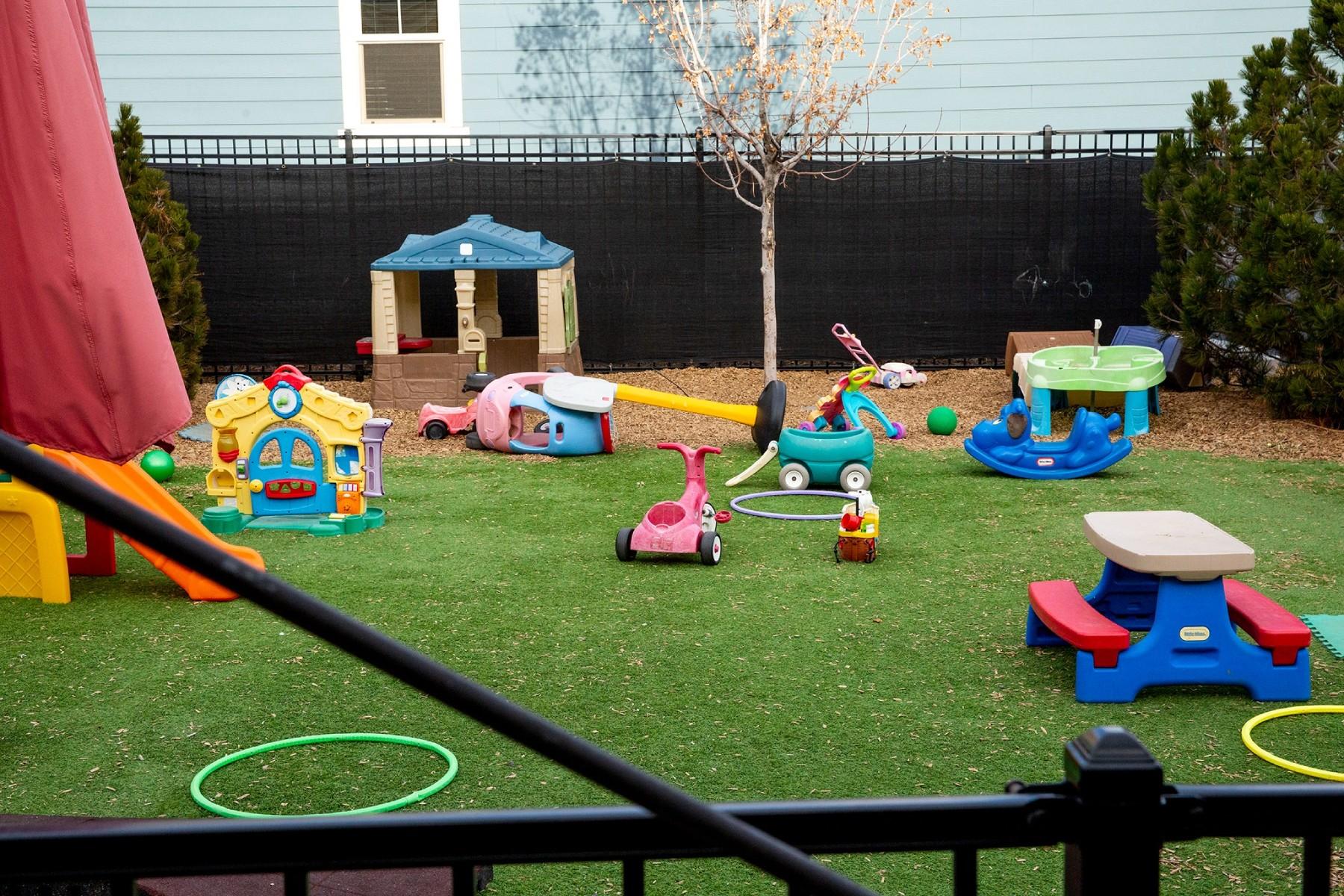
Coloradans will be able to vote for a presidential nominee much earlier than usual this year thanks to its presidential primary election moving up to March 3 — “Super Tuesday.”
That’s not the only change: Unaffiliated voters get to be part of the process, too. All of that gives Coloradans’ votes more weight than in years past.
Colorado doesn't have a ton of delegates, similar to states like Iowa and New Hampshire, which participate in the nomination process before Super Tuesday. Iowa has 41 and New Hampshire has 33, compared to the 67 Colorado will award in its primary. To win the Democratic nomination, the candidate needs to win 1,991 delegates.
But, early in the nomination process, delegates aren’t everything. Candidates also have to make people pay attention to them, and that’s exactly what happens in Iowa and New Hampshire. People pay attention to them simply because they’re first.
Super Tuesday was designed to give states whose votes came later in the calendar year — originally Alabama, Florida and Georgia — even more influence than these early states, said Seth Masket, a political science professor at the University of Denver.
“The idea of Super Tuesday was a number of other states gathering together to try and magnify their voice and get more attention and bring some of the candidates there,” Masket said.
So far in this year’s election, there hasn’t quite been a frontrunner for the Democratic Party's nomination, Masket said, and Tuesday’s votes could play a big role in deciding who the clear leader will be.
This is the first time we’ll have a primary on Super Tuesday, and the change seems to have made a difference.
The idea — as with the states that had originally voted together — was to get more presidential candidates to visit our swing state and court Coloradans’ votes.
“I think we can really highlight Colorado as a key state because among the Super Tuesday states, Colorado is one of the only ones that is also a competitive state for November — a purple state," Colorado Gov. Jared Polis said when the announcement of the new primary date came in April 2019.
Colorado will award 67 delegates in its primary, not a ton when compared to states like Texas with 228 and California with a whopping 415. Both are also recent additions to the Super Tuesday roster — Texas moved its primary up in 2016 and California is voting in March for the first time this year. But presidential candidates can’t write Colorado off and ignore our delegates, Masket said.
“It's hard to compete at that level, given the number of delegates that are at stake,” he said. “They're certainly not blowing off Colorado, but they would be wise to probably spend more of their time in more delegate-rich states like California.”
The competition is tough and expensive, and it can break a candidate quickly, Masket said. Despite the bigger states participating, Colorado is getting considerably more attention from presidential candidates now than it would have if it were still later in the nomination process. Presidential hopefuls like Pete Buttigieg, Bernie Sanders, Elizabeth Warren, Amy Klobuchar and many others have already made stops in Colorado or plan to by March 3.
Masket said Hillary Clinton didn’t visit Colorado prior to caucuses in 2016, but Bill and Chelsea Clinton did, along with Sanders.
“The main difference between this year and that one is that there are so many more candidates and the race is so unsettled,” Masket said. Unaffiliated voters add another layer of uncertainty because it's an opportunity for candidates to find new batches of voters.
Turnout should be higher than in 2016, Masket said.
“Because we've changed to a primary, that's going to boost turnout a lot,” he said “Because it allows unaffiliated, that's going to boost turnout some more. There will be people there who just have never participated in one of these before.”
In 2016, around 120,000 people participated in the Democratic caucuses. For comparison, a week out from Super Tuesday, 323,735 Democratic ballots have been returned.
Even more Republican ballots have come in so far — 362,926 have been returned as of late Tuesday night, according to the Secretary of State’s office. It’s harder to compare Republican turnout with 2016 caucuses because the party’s decision not to hold a straw poll significantly decreased turnout.
Colorado Republicans say this year’s changes won’t impact the party too seriously since GOP voters are expected to back President Trump.
“We expect president Trump to perform extremely well in the Super Tuesday primary here in Colorado,” said Lx Fangonilo, executive director for Colorado’s GOP Party. He added it’s still important for the party’s voters to get involved at caucuses, though. “This is how we build our grassroots army that will lead us to victory in 2020.”
The stakes are higher for Democrats, especially with a still-crowded field of presidential candidates.









